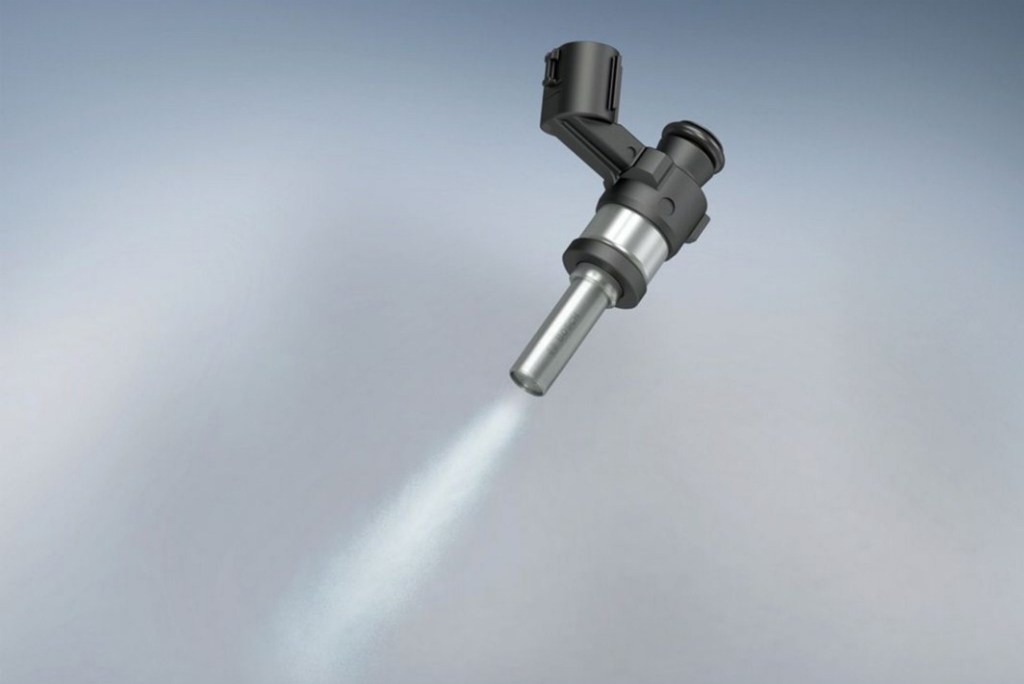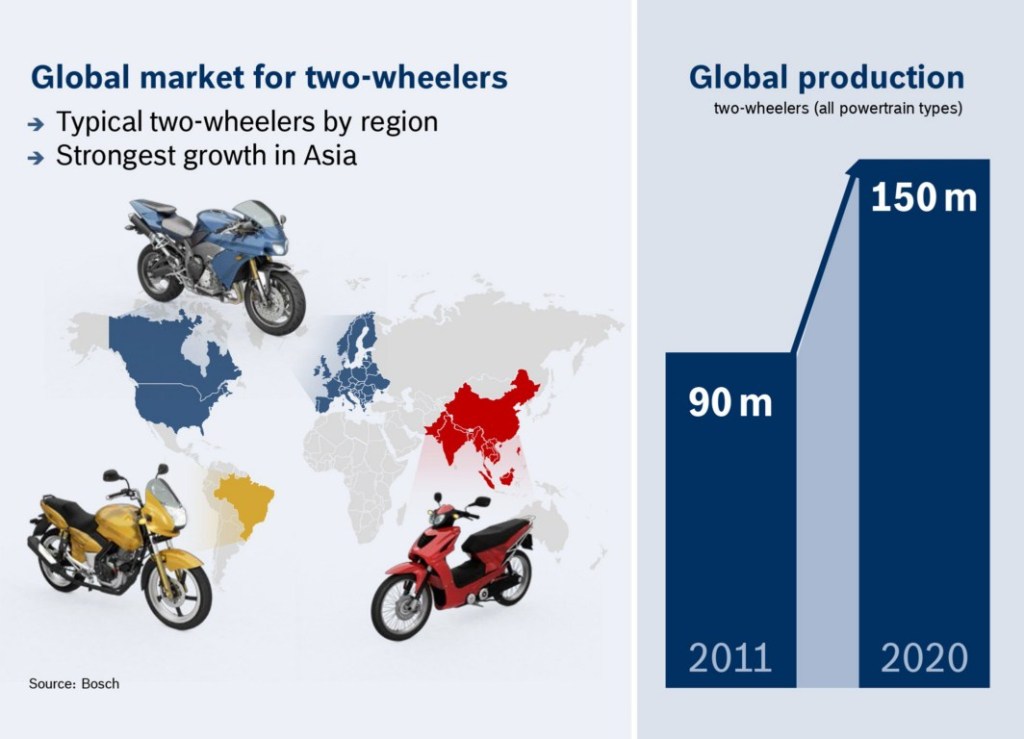Betting big on the two-wheeler market, automotive component supplier Bosch will make its entry into the global two-wheeler powertrain segment with its own range of component systems. The company has developed an electronically controlled fuel injection system that can be adapted to any kind of vehicle which will sooner or later replace carburettor technology in two-wheelers. As Bosch suggests, the new fuel injector uses technology that is similar to the port fuel injection system that the company has been manufacturing for cars since decades.
Bosch states that much like in cars, the carburetor systems are fading in the motorcycle world as well. From single-cylinder motorcycles in Asia to high capacity performance bikes in Europe and America, the new fuel injection system can be fitted on any vehicle and costs the same price as a standard carburetor version. The low cost is achieved with the help of a compact engine control unit and injection valve with additional functions. The company is also working to develop functions and software that eliminate the need for sensors.
Bosch is also working on an electronic fuel injector system that offers connectivity functions with two-wheelers allowing riders to call up information about average fuel consumption, journey details on their smartphones. The smartphone can also be used to activate immobilisers by sending a signal to cut fuel supply.
The two-wheeler market especially in India and South East Asia is seeing double-digit growth with sales expected to reach 150 million by 2020. Bosch is also focusing on zero-emission mobility with a range of electrically driven eScooters that is expected to show strong growth, particularly in China. Currently Bosch’s products for two-wheelers comprise of Anti-Lock Braking Systems (ABS) as well as motorcycle stability control systems.






